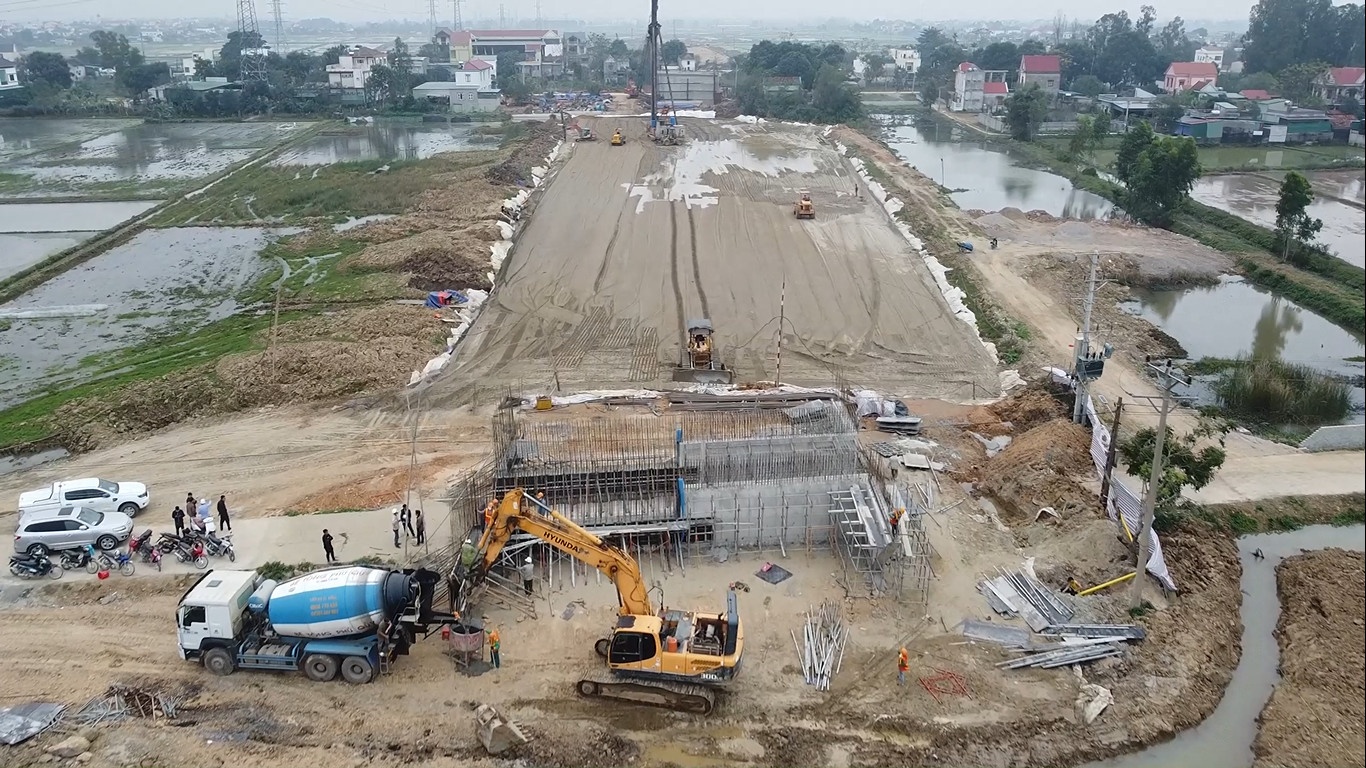Lasting price fluctuations hit contractors hard
 |
| Galloping prices for input materials and fuel could soon erode the performance of construction companies involved in side-sections of the North-South Expressway |
“The current prices of gasoline, oil, and essential materials are increasing rapidly, similar to the price fever seen in 2008,” said the contractor who is now building some sections of the Dau Giay-Phan Thiet expressway, which is part of the North-South Expressway's eastern part.
According to the contractor, as the price of gasoline and diesel oil has now almost doubled compared to the bid price, they wouldface additional costs of up to $435,000.
“The prices have not just risen rapidly but also fluctuate much. Gas station owners only sell about 1,000-2,000 litres a time while the actual demand for us can be up to 7,000 litres a day,” said the contractor representative.
| The rising gasoline and oil prices have also pushed the cost of transporting materials from the mine to the construction site. |
In October 2020, the price of round steel announced by Binh Thuan Department of Construction was $0.52 per kg. After just one month, the price jumped and has now reached $0.78 per kg, an increase of about 60 per cent.
“If including the compensations for the price increases, we cover a loss amounting to $8.7 million, equivalent to 18 per cent of the contract value, not including provisional sum,” said the contractor.
Many other contractors at the North-South Expressway are also said to be suffering similar losses.
The rising gasoline and oil prices have also pushed the cost of transporting materials from the mine to the construction site.
A representative of the Mai Son-National Highway management unit under the Ministry of Transport (MoT) said that the price of hot solid asphalt for construction was $0.47 per kg in 2020. Currently, the price can reach about $0.65 per kg and could further swell by 15-20 per cent in the coming months.
The MoT is currently implementing about 40 public investment projects in the national transport infrastructure.
For these projects, the contracts mainly apply unit prices adjusted according to the construction price index announced by the locality where the project is implemented. The cost factors in the adjustment formula include labour cost, construction machinery, the cost of fuel, and raw materials.
As the market is experiencing unusual price fluctuations, these indices have yet to properly reflect these price fluctuations.
“The current adjustment method only covers about 50-60 per cent of the actual cost. With the current price fluctuations, the contractor will soon be financially exhausted, greatly affecting the project progress,” said Tran Quang Tuyen, deputy general director of Van Cuong Co., Ltd., a large contractor of transport infrastructure works.
Last June, the MoT sent an official dispatch to the Ministry of Construction (MoC) on the impact of the pandemic and steel price fluctuations on construction activities.
In this dispatch, the MoT requests the MoC to send documents to the prime minister, requesting the People's Committee and the Department of Construction of the localities where the work are carried out to announce building material prices and monthly construction prices suitable to the actual market price.
At the same time, the MoT suggested that the MoC consider assigning independent consulting units to survey and determine the construction price indices, helping to harmonise the interests of building contractors and the state.
What the stars mean:
★ Poor ★ ★ Promising ★★★ Good ★★★★ Very good ★★★★★ Exceptional
Related Contents
Latest News
More News
- VinaCapital launches Vietnam's first two strategic-beta ETFs (February 26, 2026 | 09:00)
- PM sets five key tasks to accelerate sci-tech development (February 26, 2026 | 08:00)
- PM outlines new tasks for healthcare sector (February 25, 2026 | 16:00)
- Citi report finds global trade transformed by tariffs and AI (February 25, 2026 | 10:49)
- Vietnam sets ambitious dairy growth targets (February 24, 2026 | 18:00)
- Vietnam, New Zealand seek level-up in ties (February 19, 2026 | 18:06)
- Untapped potential in relations with Indonesia (February 19, 2026 | 17:56)
- German strengths match Vietnamese aspirations (February 19, 2026 | 17:40)
- Vietnam’s pivotal year for advancing sustainability (February 19, 2026 | 08:44)
- Strengthening the core role of industry and trade (February 19, 2026 | 08:35)

 Tag:
Tag:























 Mobile Version
Mobile Version